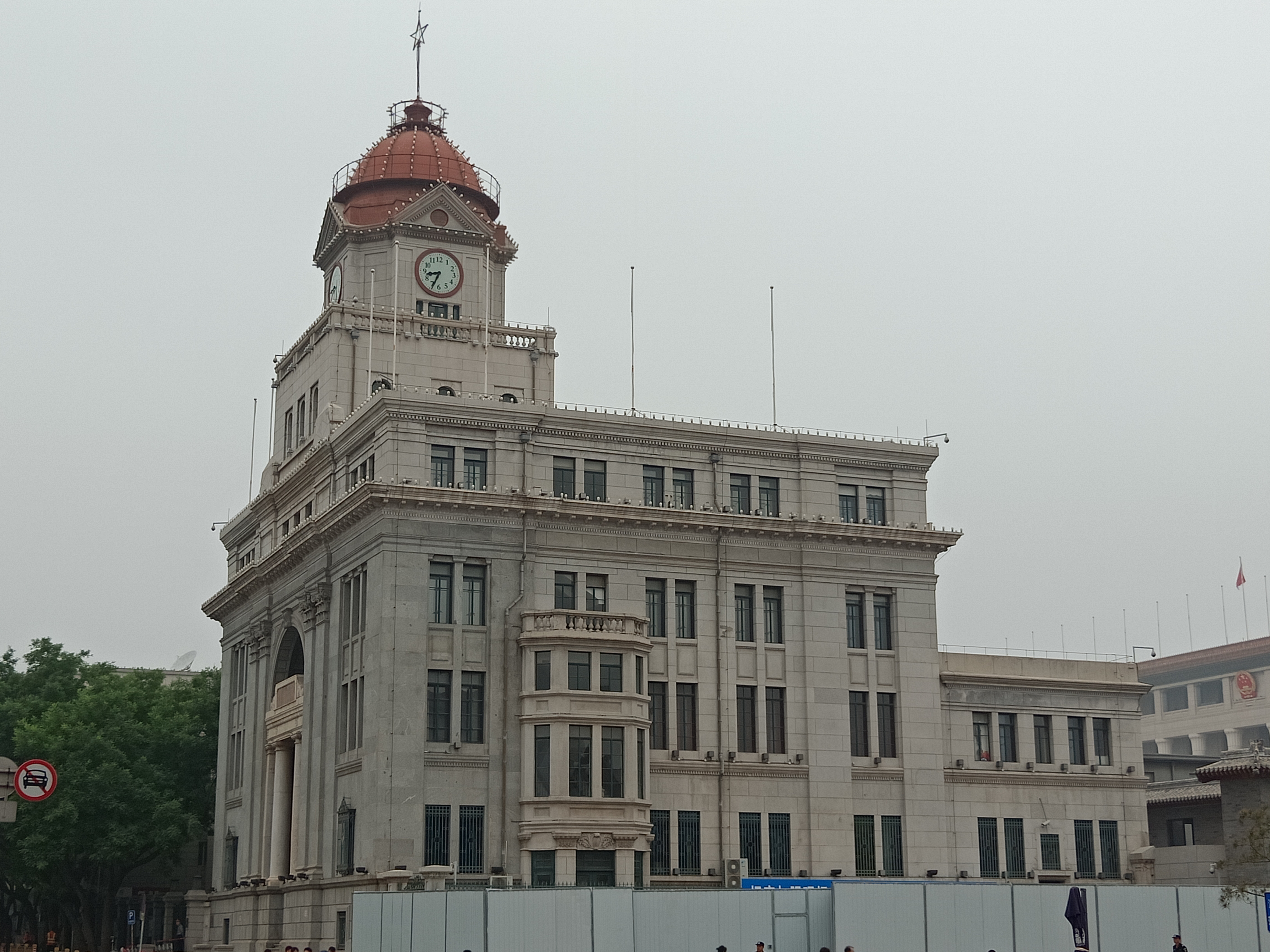|
Bank Of China
The Bank of China (BOC; ; Portuguese language, Portuguese: ''Banco da China'') is a state-owned Chinese Multinational corporation, multinational banking and financial services corporation headquartered in Beijing, Beijing, China. It is one of the "Big four banks, big four" banks in China. As of 31 December 2019, it was the second-largest lender in China overall and ninth-largest bank in the world by market capitalization value, and it is considered a Systemically important financial institution, systemically important bank by the Financial Stability Board. As of the end of 2020, it was the List of largest banks, fourth-largest bank in the world in terms of total assets, ranked after the other three Chinese banks. The Bank of China was formed in 1912 by renaming the Qing dynasty's Da-Qing Bank (est. 1905) under the newly established Republican government. Until 1942, it issued banknotes on behalf of the government as one of the "Big Four" banks of the period, together with the ... [...More Info...] [...Related Items...] OR: [Wikipedia] [Google] [Baidu] |
Beijing
Beijing, Chinese postal romanization, previously romanized as Peking, is the capital city of China. With more than 22 million residents, it is the world's List of national capitals by population, most populous national capital city as well as China's List of cities in China by population, second largest city by urban area after Shanghai. It is located in North China, Northern China, and is governed as a Direct-administered municipalities of China, municipality under the direct administration of the Government of the People's Republic of China, State Council with List of administrative divisions of Beijing, 16 urban, suburban, and rural districts.Figures based on 2006 statistics published in 2007 National Statistical Yearbook of China and available online at archive. Retrieved 21 April 2009. Beijing is mostly surrounded by Hebei Province and neighbors Tianjin to the southeast; together, the three divisions form the Jing-Jin-Ji, Jing-Jin-Ji cluster. Beijing is a global city and ... [...More Info...] [...Related Items...] OR: [Wikipedia] [Google] [Baidu] |
Insurance
Insurance is a means of protection from financial loss in which, in exchange for a fee, a party agrees to compensate another party in the event of a certain loss, damage, or injury. It is a form of risk management, primarily used to protect against the risk of a contingent or uncertain loss. An entity which provides insurance is known as an insurer, insurance company, insurance carrier, or underwriter. A person or entity who buys insurance is known as a policyholder, while a person or entity covered under the policy is called an insured. The insurance transaction involves the policyholder assuming a guaranteed, known, and relatively small loss in the form of a payment to the insurer (a premium) in exchange for the insurer's promise to compensate the insured in the event of a covered loss. The loss may or may not be financial, but it must be reducible to financial terms. Furthermore, it usually involves something in which the insured has an insurable interest established by o ... [...More Info...] [...Related Items...] OR: [Wikipedia] [Google] [Baidu] |
Big Four Banks
The Big Four (or Big 4) is the colloquial name given to the four main banks in several countries where the banking industry is dominated by just four institutions and where the phrase has thus gained relevance. Some countries include more or fewer institutions in such rankings, leading to other names such as Big Three, Big Five, or Big Six. International use Internationally, the term "Big Four Banks" has traditionally referred to the following central banks: Australia In Australia, the "big four banks" refers to the four largest banks that have historically dominated Australia's banking industry in terms of market share, revenue, and total assets. The "big four banks" of Australia are: A longstanding policy of the federal government in Australia has been to maintain this status quo, called the four pillars policy. The policy has been maintained through the Global Recession of 2008–09, as Westpac acquired St George Bank and the Commonwealth Bank acquired Bankwest ... [...More Info...] [...Related Items...] OR: [Wikipedia] [Google] [Baidu] |
Financial Services
Financial services are service (economics), economic services tied to finance provided by financial institutions. Financial services encompass a broad range of tertiary sector of the economy, service sector activities, especially as concerns financial management and consumer finance. The finance industry in its most common sense concerns commercial banks that provide market liquidity, derivative (finance), risk instruments, and broker, brokerage for large public company, public companies and multinational corporations at a macroeconomics, macroeconomic scale that impacts domestic politics and foreign relations. The extragovernmental power and scale of the finance industry remains an ongoing controversy in many industrialized Western economies, as seen in the American Occupy Wall Street civil protest movement of 2011. Styles of financial institution include credit union, bank, savings and loan association, trust company, building society, brokerage firm, payment processor, many ty ... [...More Info...] [...Related Items...] OR: [Wikipedia] [Google] [Baidu] |
Multinational Corporation
A multinational corporation (MNC; also called a multinational enterprise (MNE), transnational enterprise (TNE), transnational corporation (TNC), international corporation, or stateless corporation, is a corporate organization that owns and controls the production of goods or services in at least one country other than its home country. Control is considered an important aspect of an MNC to distinguish it from international portfolio investment organizations, such as some international mutual funds that invest in corporations abroad solely to diversify financial risks. Most of the current largest and most influential companies are Public company, publicly traded multinational corporations, including Forbes Global 2000, ''Forbes'' Global 2000 companies. History Colonialism The history of multinational corporations began with the history of colonialism. The first multinational corporations were founded to set up colonial "factories" or port cities. The two main examples were the ... [...More Info...] [...Related Items...] OR: [Wikipedia] [Google] [Baidu] |
Portuguese Language
Portuguese ( or ) is a Western Romance language of the Indo-European language family originating from the Iberian Peninsula of Europe. It is the official language of Angola, Brazil, Cape Verde, Guinea-Bissau, Mozambique, Portugal and São Tomé and Príncipe, and has co-official language status in East Timor, Equatorial Guinea and Macau. Portuguese-speaking people or nations are known as Lusophone (). As the result of expansion during colonial times, a cultural presence of Portuguese speakers is also found around the world. Portuguese is part of the Iberian Romance languages, Ibero-Romance group that evolved from several dialects of Vulgar Latin in the medieval Kingdom of Galicia and the County of Portugal, and has kept some Gallaecian language, Celtic phonology. With approximately 250 million native speakers and 17 million second language speakers, Portuguese has approximately 267 million total speakers. It is usually listed as the List of languages by number of native speaker ... [...More Info...] [...Related Items...] OR: [Wikipedia] [Google] [Baidu] |
Fitch Ratings
Fitch Ratings Inc. is an American credit rating agency. It is one of the three nationally recognized statistical rating organizations (NRSRO) designated by the U.S. Securities and Exchange Commission and is considered as being one of the " Big Three credit rating agencies", along with Moody's and Standard & Poor's. History Fitch Ratings is dual headquartered in New York and London. Hearst owns 100 percent of the company following its acquisition of an additional 20 percent for $2.8 billion on April 12, 2018. Hearst had owned 80 percent of the company after increasing its ownership stake by 30 percent on December 12, 2014, in a transaction valued at $1.965 billion. Hearst's previous equity interest was 80 percent following expansions on an original acquisition of 20 percent interest in 2006. Hearst had jointly owned Fitch with FIMALAC SA, which held 20 percent of the company until the 2018 transaction. Fitch Ratings and Fitch Solutions are part of the Fitch Group. The ... [...More Info...] [...Related Items...] OR: [Wikipedia] [Google] [Baidu] |
Moody's Investors Service
Moody's Ratings, previously and still legally known as Moody's Investors Service and often referred to as Moody's, is the bond credit rating business of Moody's Corporation, representing the company's traditional line of business and its historical name. Moody's Ratings provides international financial research on bonds issued by commercial and government entities. Moody's, along with Standard & Poor's and Fitch Group, is considered one of the Big Three credit rating agencies. It is also included in the ''Fortune'' 500 list of 2021. The company ranks the creditworthiness of borrowers using a standardized ratings scale which measures expected investor loss in the event of default. Moody's Ratings rates debt securities in several bond market segments. These include government, municipal and corporate bonds; managed investments such as money market funds and fixed-income funds; financial institutions including banks and non-bank finance companies; and asset classes in s ... [...More Info...] [...Related Items...] OR: [Wikipedia] [Google] [Baidu] |
Government Of The People's Republic Of China
The government of the People's Republic of China is based on a system of people's congress within the parameters of a Unitary state, unitary communist state, in which the ruling Chinese Communist Party (CCP) enacts its policies through people's congresses. This system is based on the principle of Unified power, unified state power, in which the legislature, the National People's Congress (NPC), is Constitution of the People's Republic of China, constitutionally enshrined as "the highest state organ of power." As China's political system has no separation of powers, there is only one branch of government which is represented by the legislature. The CCP through the NPC enacts unified leadership, which requires that all state organs, from the Supreme People's Court to the State Council of China, are elected by, answerable to, and have no separate powers than those granted to them by the NPC. By law, all elections at all levels must adhere to the leadership of the CCP. The CCP contro ... [...More Info...] [...Related Items...] OR: [Wikipedia] [Google] [Baidu] |
Bank Of China (Hong Kong)
Bank of China (Hong Kong) Limited (), abbreviated as BOCHK (), is a subsidiary of the Bank of China (via the Hong Kong-listed intermediate holding company BOC Hong Kong Holdings). Bank of China (Hong Kong) is the second-largest commercial banking group in Hong Kong in terms of assets and customer deposits (2008 data), with more than 190 branches across Hong Kong as of the end of 2019. It is also one of the three commercial banks licensed by the Hong Kong Monetary Authority to issue banknotes for the Hong Kong dollar. BOCHK is legally separated from its parent, Bank of China (BOC), although they maintain close relations in management and administration and co-operate in several areas, including reselling BOC's insurance and securities services. BOCHK is also the biggest member and the JETCO ATM and payment system, and the designated clearing bank in Hong Kong for transactions involving the Renminbi (RMB / CNY). BOCHK was established on 1 October 2001 from a merger of 12 su ... [...More Info...] [...Related Items...] OR: [Wikipedia] [Google] [Baidu] |
Wealth Management
Wealth management (WM) or wealth management advisory (WMA) is an investment advisory service that provides financial management and wealth advisory services to a wide array of clients ranging from affluent to high-net-worth (HNW) and ultra-high-net-worth (UHNW) individuals and families. It is a discipline which incorporates structuring and planning wealth to assist in growing, preserving, and protecting wealth, whilst passing it onto the family in a tax-efficient manner and in accordance with their wishes. Wealth management brings together tax planning, wealth protection, estate planning, succession planning, and family governance. Private wealth management Private wealth management is sought by high-net-worth investors. Generally, this includes advice on the use of various estate planning vehicles, business-succession or stock-option planning, and the occasional use of hedging derivatives for large blocks of stock. Traditionally, the wealthiest retail clients of investment ... [...More Info...] [...Related Items...] OR: [Wikipedia] [Google] [Baidu] |






